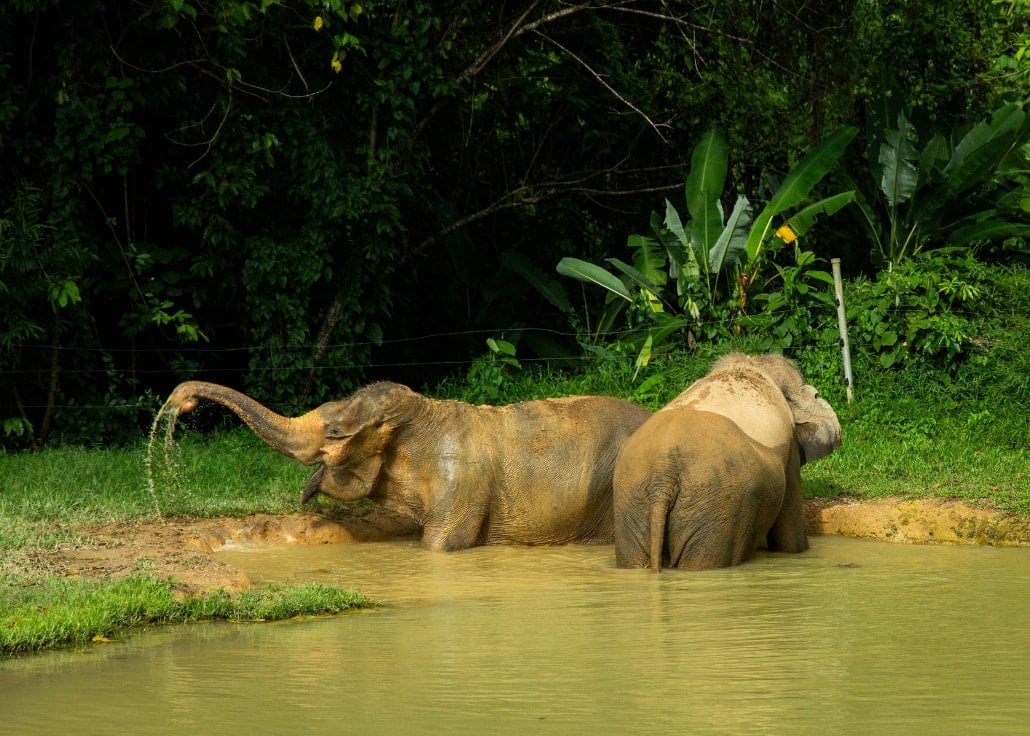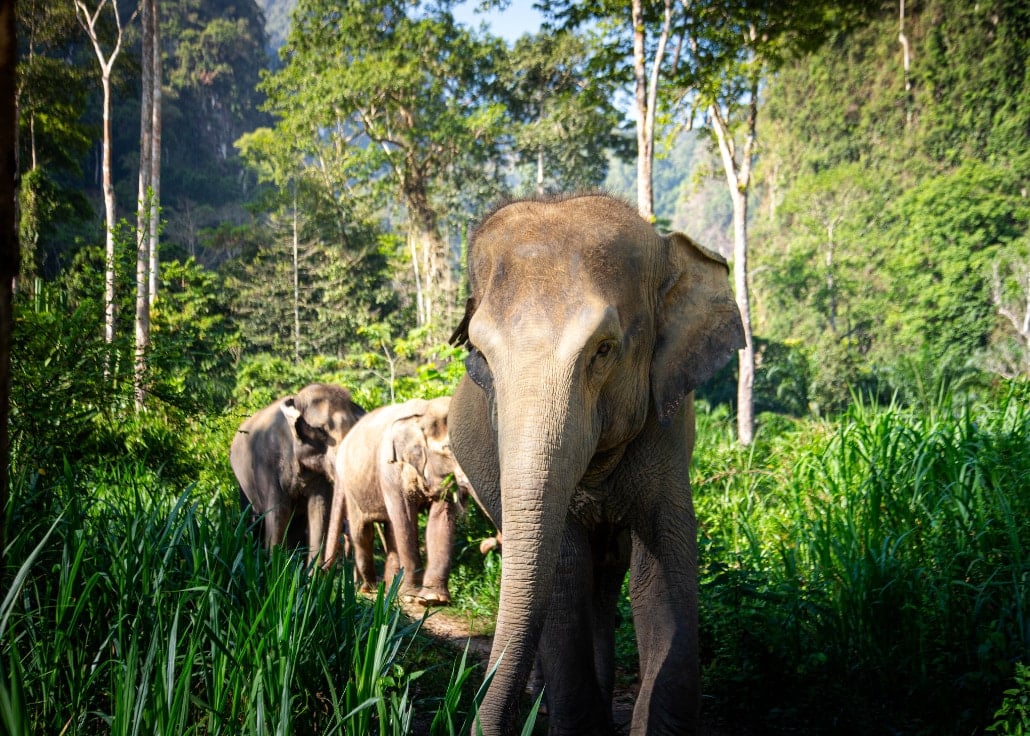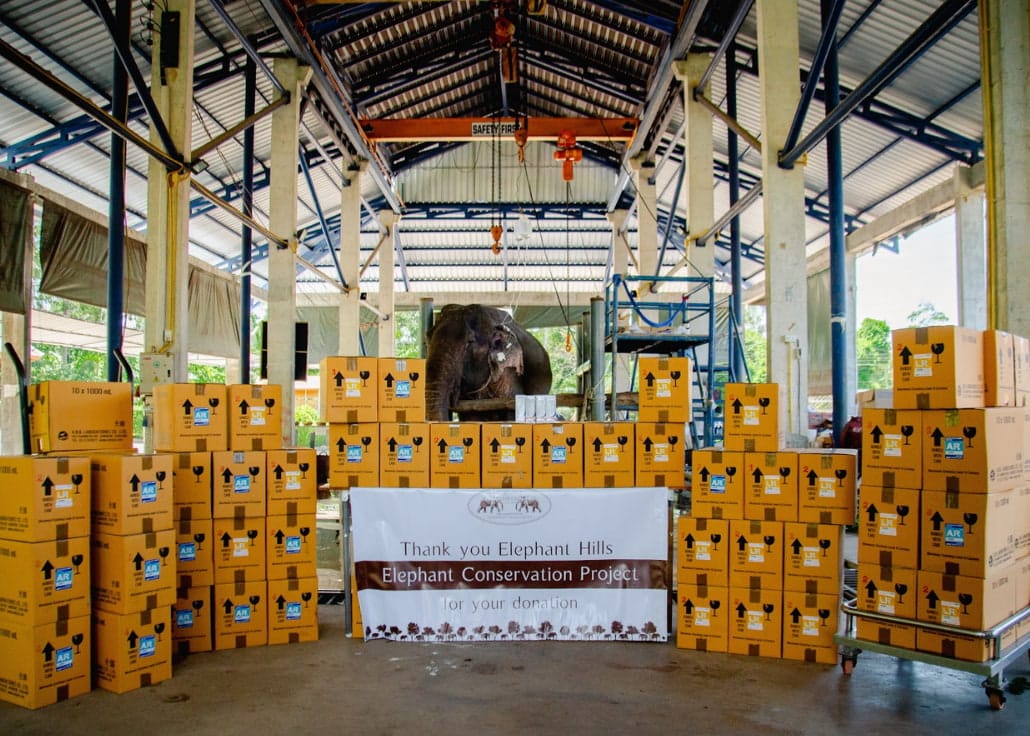Can Your Holiday Help Protect Elephants?

For many travellers, the thought of seeing elephants up close is a highlight of visiting Thailand. But in recent years, more people have begun to ask more profound questions: How are these animals treated? Is it ethical? And can travel actually help with elephant conservation? The answer is yes—if done responsibly.
Responsible travel doesn’t just mean avoiding harm; it also means promoting positive change. It means actively doing good. When you choose the right providers and experiences, your holiday can contribute to real, long-term conservation work. One of the best examples of this in action is Elephant Hills Thailand.
Why Responsible Travel Matters for Elephant Conservation

Asian elephants are under constant threat. Habitat loss from agriculture and infrastructure projects is pushing wild populations into smaller areas. Unauthorised logging, poaching, and outdated tourism models—such as elephant riding and circus-style performances—further exacerbate the pressure.
But responsible tourism offers an alternative. By channelling visitor interest and revenue into ethical experiences, conservation funding, and community engagement, travellers can directly support positive change. At its best, tourism creates a win-win scenario: elephants get better care, and local communities benefit economically.
For example, responsible travel has helped fund anti-poaching patrols, supported wildlife corridors between fragmented forest areas, and provided education scholarships for children living near elephant habitats. These benefits ripple outward, creating an environment where people and wildlife can thrive together.
Choosing responsible elephant tourism is no longer a niche concept—it has become the norm. And this shift is making a measurable difference on the ground.
What Makes an Elephant Experience Ethical?

Not all elephant experiences are created equal. Truly ethical operations prioritise animal welfare above all else. Here are some key indicators to look for:
- No elephant riding—this is harmful to the animals and no longer acceptable in responsible tourism.
- No forced performances or unnatural behaviours.
- Elephants are allowed to roam, feed, swim, and socialise on their own terms.
- Visitors observe and learn rather than dominating or controlling.
Transparency is also vital. A responsible provider will clearly communicate their practices and the reasons behind them. You can see this in action through the Elephant Experience at Elephant Hills, which is based entirely on observation and education, not exploitation.
How Elephant Hills Supports Conservation

Elephant Hills has earned international recognition for its approach. Their model is simple yet powerful: create meaningful, ethical interactions between humans and elephants—without riding, without chains, and without performance.
Guests have the opportunity to feed the elephants, observe them swim, and learn about their history and care needs. The environment is calm, spacious, and designed to let elephants be elephants. Veterinary care is provided, and natural materials are used in the shelters and feeding areas.
Beyond the guest experience, Elephant Hills is deeply committed to conservation through their dedicated Elephant Conservation Project. This initiative provides food, medicine, and ongoing support to partner elephants across Thailand—especially those who have been rescued or retired from hard labour.
The programme also collects data on elephant behaviour and nutrition to help refine care standards nationwide. Some elephants have regained weight, muscle tone, and social behaviours that had deteriorated in less supportive environments. These measurable improvements are a testament to what responsible tourism can achieve.
They also collaborate with government agencies and National Parks to support sustainable forest management and biodiversity protection. Their reach now extends beyond the camp itself, contributing to a national effort to protect Thailand’s remaining elephant population.
Community & Environmental Benefits

Responsible elephant tourism doesn’t stop with the animals. It also uplifts local communities and the surrounding environment. Elephant Hills employs local staff, guides, and cooks, offering sustainable and long-term employment opportunities within an eco-tourism model.
Food is sourced from nearby farms, and materials are purchased locally whenever possible. In doing so, Elephant Hills ensures that the benefits of tourism are shared directly with the local community, reducing the need for activities that might otherwise harm the environment or wildlife.
Their broader commitment to sustainability is evident in projects such as tree planting, plastic reduction initiatives, solar energy trials, and educational outreach to schools, as outlined on their Sustainability Projects page. These efforts are closely aligned with elephant conservation, addressing the root causes of environmental degradation.
What You Can Do as a Traveller

Travellers have more power than they realise. Every decision you make—from where you book to how you share your experience—can influence the tourism industry for the better. Here’s how you can make your trip count:
- Only choose operators that avoid riding and performances.
- Research the camp’s conservation and welfare credentials.
- Spread the word about ethical travel—online reviews matter!
- Support conservation efforts by donating or staying with providers that give back.
- Book your experience with leaders in the field, such as Elephant Hills.
Even small actions can have a lasting effect. Sharing your experience on social media, recommending ethical operators, or simply choosing not to engage in exploitative activities all contribute to the broader movement. As the team at Elephant Hills often says, “Every booking is a vote—for the future you want to see.”
Frequently Asked Questions
1. What is responsible elephant tourism?
Responsible elephant tourism ensures animals are treated ethically—no riding, chaining, or forced interaction. It prioritises animal welfare, education, and conservation.
2. Is Elephant Hills an ethical elephant camp?
Yes. Elephant Hills offers non-riding, observation-based experiences and contributes to elephant welfare through their conservation project. Their transparency and hands-off approach set them apart from other camps.
3. How does my visit support elephant conservation?
A portion of your booking helps fund care, habitat preservation, and community initiatives that protect elephants in the long term. You can read more on the Elephant Conservation Project page.
4. Can children visit Elephant Hills?
Yes! The experience is family-friendly and educational, designed for almost all ages without harming elephants. It’s an ideal way to introduce young travellers to responsible tourism.
Ready to Make Your Trip Count?
Responsible elephant tourism in Thailand isn’t just possible—it’s thriving. And at Elephant Hills, your visit helps fuel a better future for elephants, rainforests, and local communities.
To take the next step, explore our ethical elephant tours and discover how your holiday can make a meaningful impact through responsible travel and elephant conservation.
You might also like…
Discover The Bush Camp Chiang Mai: An Ethical Elephant Encounter
Thailand’s Cultural Gems: Unveiling Temples, Traditions & Thai Cuisine
Discover the Best of Southern Thailand: Your Guide to Phuket, Koh Samui, Krabi and Khao Lak
Khao Sok National Park – A Jungle Adventure In Southern Thailand
Honeymoon Destinations in Thailand


